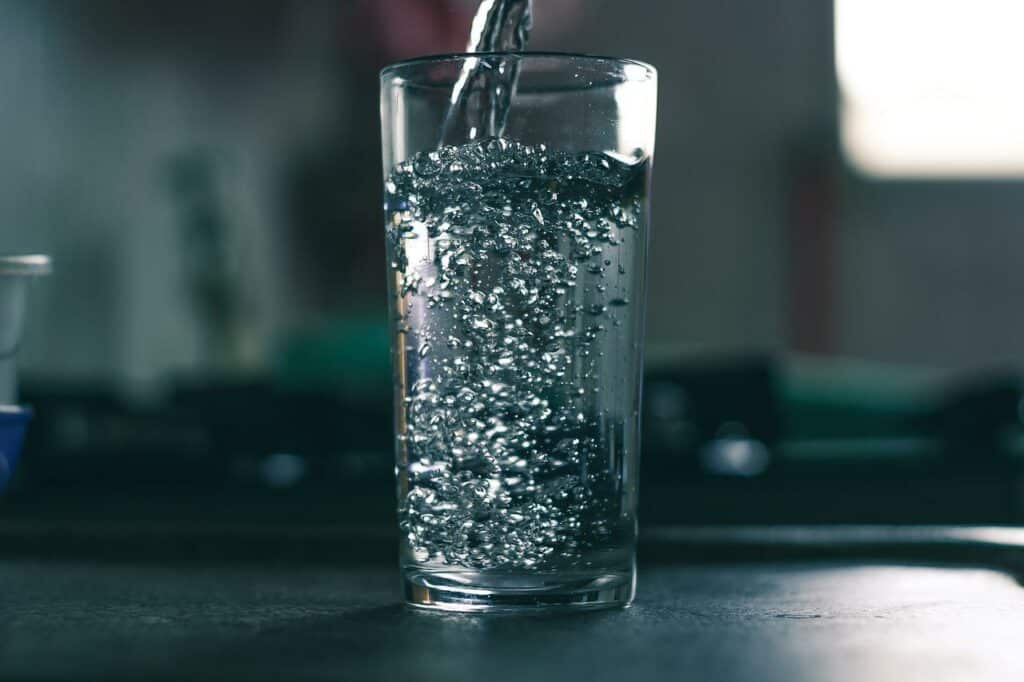Most dog owners give their fur friend water straight from the faucet without giving it much thought.
Moreover, we’ve seen kids with their favorite companions frequently drink from an outside hose pipe when their parents are not observing, and most are healthy looking.
Does that mean it’s a safe stream to drink?
So, can dogs drink filtered water?
Yes, filtered water is safe for dogs—the filtration process eliminates bacteria and harmful contaminants, retaining most of the minerals essential for your canines’ health.
Tap water is also good, provided it doesn’t contain harmful bacteria and contaminants.
Although bottled water isn’t great, offer your dog if it’s the only viable option.
Join us in discovering everything about dogs and the best water to provide for a healthy pup.

What are the benefits of filtered water for dogs?
Filtered water is considered the best option for dogs though expensive for a pet owner.
It contains essential minerals which surpass that cost pinch.
Here’s why you should give your favorite four-legged companion filtered water;
Fewer contaminants
The main benefit of filtering water is getting rid of tap water toxins and other drinking water sources.
Studies suggest that tap water contains many contaminants like copper and bacteria, which can easily lead to infections and digestive issues such as frequent diarrhea in canines.
Minerals rich
Minerals and micronutrients are important in drinking water for humans and canines.
They improve taste, provide us with essential minerals and boost general health.
Calcium and magnesium in filtered water reduce gastric problems and heart diseases in dogs.
Clears tear stains
Tear stains are tiny marks on your dog’s eyes, conspicuous in canines with lighter-colored fur.
The stains are caused by poor diet and contaminated tap water.
The bigger stain, the more toxins your furry friend ingests through unfiltered water or contaminated food.
Filtering water eliminates this problem promoting a healthy-looking pup.
Less chlorine
Filtered water reduces the amount of chlorine in the drinking water for canines.
Increased chlorine levels are dangerous for your canine’s body cells and may lead to coughing and breathing difficulties, among other health problems.
Pets are prone to chlorine damage since their digestive systems cannot withstand such intense chemicals.

When should I give my dog filtered water?
If you’re concerned enough to filter your drinking water, the general rule of thumb is to do the same for your pup.
Here are instances to offer your dog filtered water:
Filtered water at home
A faucet filtration system is a simple and cost-effective method that’ll give your fur friend tasty water packed with rich nutrients and free from contaminants.
First, you’ll have to invest in a water filter—this saves you coins in the long run.
Moreover, it’s a better way of conserving the environment than frequently purchasing filtered bottled water.
Sick pup
If you can’t manage to filter water at home, ensure you give your dog filtered water when they are sick, especially if your pup has gastrointestinal problems, sensitive stomachs, or fighting an infection.
This aids in the healing and minimizes risks of further complications that may arise due to toxins in the water.
Traveling
If you’ve gone to a hotel with your dog, better offer them water since you don’t know how clean the faucet is or the safety of that tap water.
A slight change in water PH for your pup may lead to loose stool or constipation in some instances.
Avoid that by carrying enough filtered water from home when traveling.
Is distilled water safe for dogs?
The distillation process involves hard boiling water to kill bacteria and parasites, then cooling and condensing the vapor in a separate jar.
This results in a liquid with a bland taste but without contaminants.
On the flip side, distillation removes healthy and essential minerals like electrolytes in water that are important for your dog’s proper functioning.
Be wary of maintaining a balance between hard water and mineral-filled water healthy for your furry friend.
This is where filtered water comes in handy; it removes an insignificant amount of minerals but scraps out toxins.
Can dogs drink tap water?
Basically, dogs should drink the water that you and your family consume.
Research indicates tap water contains additives like fluoride, which eliminates bacteria and chemicals.
However, toxins are not the issue here, but fluoride is a dangerous heavy metal for your canines’ health.
Moreover, there’s chlorine in most public water systems.
Although there’s no solid evidence on how fluoride and chloride affect dogs, accumulating such heavy metals isn’t good for their health.
On the other hand, tap water passes through a purification process that retains most of the micronutrients and minerals, making it healthy for both canines and humans.
Water softening processes remove calcium and magnesium essential for proper body functioning.
However, if your municipal water isn’t safe, jump to filtered water instead.
Can dogs drink well water?
Well water may contain pollutants and bacteria such as nitrates not good for your canine’s health.
Most wells are a breeding ground for green algae, which is toxic to dogs.
The bottom line
Tap water is typically fine for dogs, provided it doesn’t contain harmful chemicals and isn’t too hard.
However, when it comes to water safety for your pup, give them what you also drink or should be drinking.
Harmful bacteria and contaminants don’t discriminate between humans and canines—they affect both at a different scale depending on the immune system.
Filtered water is better for pups than tap or distilled water since it offers taste and micronutrients.
Faucet filtration systems are gaining popularity and at reasonable prices—invest in one and enjoy healthy filtered water with your furry pal.
- What Dog Breeds Have Pink Skin? - March 24, 2023
- What Are the Most Inspiring Dog Breeding Quotes? - March 20, 2023
- Can Pheromone Spray Help Improve Dog Breeding Results? - March 19, 2023








